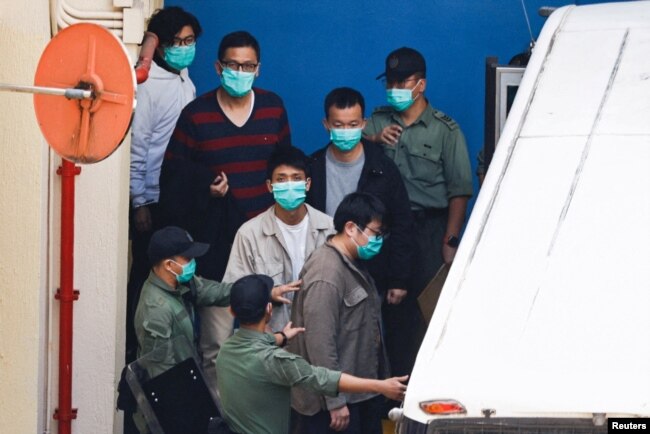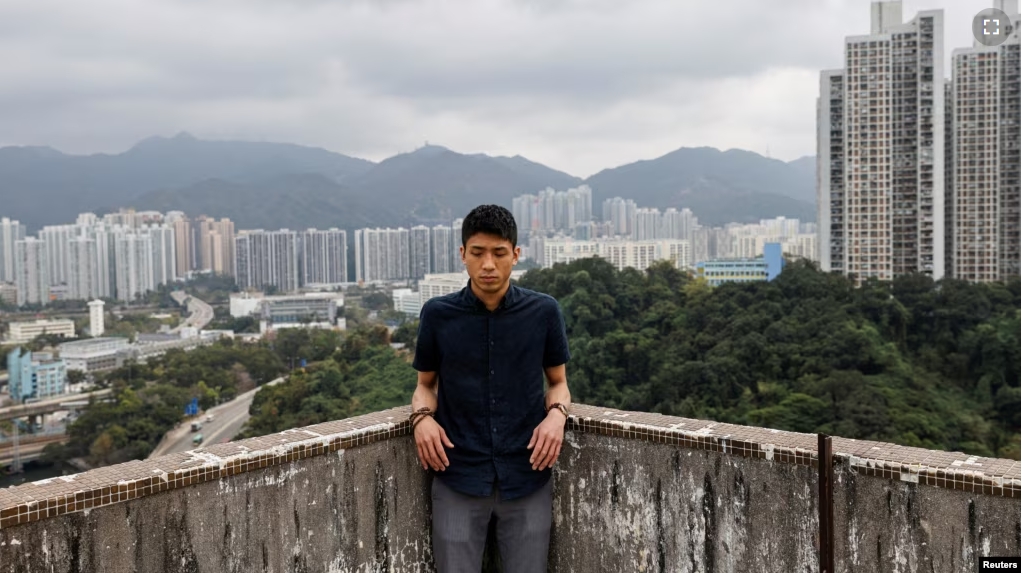A court in Hong Kong found 14 pro-democracy activists guilty of crimes linked to an unofficial vote in 2020. Some could face life in prison.
Hong Kong officials said the action was part of a plot to hurt the government and “subvert state power.” The main crime was termed conspiracy to commit subversion. The ruling ends a four-year legal case that has gained international attention.
A democracy activist
Among those convicted was 27-year-old Owen Chow, a democracy activist who has spent most of the last four years in prison.
Chow told the court that he considered withdrawing from the election after studying the security laws put in place by the government in Beijing in 2020. But he said he “could not leave the masses.”
In their judgment Thursday, the judges said they had “no doubt” that Chow’s purpose for taking part in the election was to “undermine, destroy or overthrow the existing political system.”
A former nursing student, Chow started his activism during mass protests over a disputed piece of legislation in 2019. In a separate trial, a court sentenced Chow to five years in prison for temporarily occupying Hong Kong’s legislature during the protests.
Chow told Reuters that all he had done was to fight for democratic freedoms legally guaranteed under Hong Kong’s law since 1997. That year Britain handed over the territory to China.
“Democracy is the future of Hong Kong. This won’t change regardless of those in power,” Chow said in a room at a high-security prison.

Chow spoke to Reuters in 2021 before he was arrested. He said he decided to become a health care worker after his father died.
“Since then, I wanted to take care of others,” he said. But he suspended his studies to run in the primary election named in the court case.
Chow became interested in activism when huge pro-democracy protests started in Hong Kong. He voiced opposition to quieter plans from older democracy supporters. Chow was one of nearly 3000 people who faced charges for offenses related to the 2019 protests. More than 290 people faced national security charges.
Chow and others were denied a jury trial although Hong Kong common law permits them. Thirty-two people have spent over 1,000 days in jail without bail. Bail is a process that secures a person’s release from prison while they await trial.
In March, Hong Kong’s government said in a statement that all defendants have the right to a fair trial by an independent judiciary. It rejected U.S. criticism of Hong Kong’s additional national security measures.
Taking things in stride
Chow said he has tried to remain healthy and strong in prison through exercise, meditation and study. He reads six books each month including works on politics, philosophy and Buddhism.
Chow said prison life is difficult, but he tried to take the difficulties in a balanced way or “in stride.”
“If we accept that adversity is inevitable and treat adversity as a rare chance to train ourselves, to improve ourselves, we can all take things in our stride,” he said.
In 2021, Chow met a reporter named Amanda. She told Reuters that the two have a relationship. She is now based in Britain.
Chow is now mainly in a one-man prison cell in Stanley Prison. He likely faces another long prison sentence. But he said he is considering what is best over the long term.
“It’s a sacrifice for Hong Kong. It’s as if I’m sitting in jail for everyone else and suffering on behalf of others.”
But he added, “What I’ve gained is more than I’ve lost.”
I’m Mario Ritter, Jr.
Jessie Pang and James Pomfret reported this story for the Reuters news agency. Mario Ritter, Jr. adapted it for VOA Learning English.
______________________________________________
Words in This Story
conspiracy –n. the action of plotting with others to commit a crime
nursing –n. being a health care worker in a hospital or a service that provides such care
meditation –n. spending time in thought and reflection
adversity –n. difficult conditions
inevitable –adj. unavoidable; sure to happen
